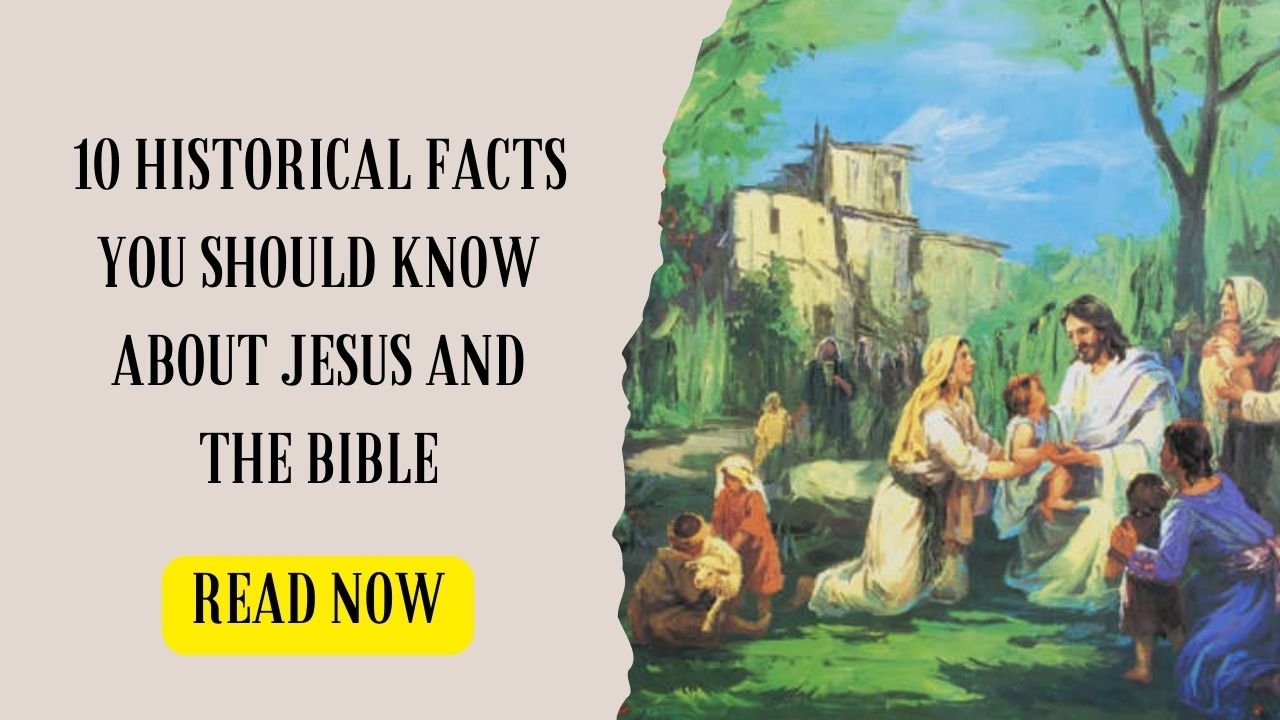6. Miracle Worker or Symbolic Healer?

The Gospels describe Jesus performing miracles, like healing the sick and raising the dead. While there’s no scientific evidence for these events, some scholars suggest that people’s beliefs and interpretations at the time may have shaped these stories.
7. The Last Supper: A Passover Feast

The Last Supper, where Jesus shared a final meal with his disciples, is a cornerstone of Christian tradition. Archaeologists suggest the meal likely included dishes like bean stew, lamb, olives, and unleavened bread—quite different from Leonardo da Vinci’s famous depiction!
8. The Crucifixion: A Historical Reality

Jesus’ crucifixion under Pontius Pilate is well-documented in the Gospels. Archaeological evidence of Roman crucifixions supports the historical accuracy of this event, making it one of the most widely accepted facts about Jesus’ life.
9. The Resurrection: Faith vs. History

The resurrection of Jesus is a cornerstone of Christian belief. While there’s no non-Biblical evidence for this event, scholars suggest that the belief in his resurrection may have been fueled by the fervent faith of his followers.
10. The Church of the Holy Sepulchre

This ancient church in Jerusalem is believed to be the site of Jesus’ crucifixion and resurrection. A major pilgrimage site, it has been studied extensively by archaeologists and historians, adding layers of historical intrigue to its spiritual significance.
Quick Reference Table: Key Facts About Jesus
| Fact | Details |
| Historical Existence | Widely accepted by scholars; no physical evidence but strong textual records. |
| Jewish Background | Born and raised in a Jewish family; teachings rooted in Jewish tradition. |
| Birthplace | Likely Bethlehem or Nazareth; some debate about exact location. |
| Baptism | Baptized in the River Jordan; exact spot still debated. |
| Itinerant Preacher | Traveled extensively, teaching about God’s Kingdom and ethical living. |
| Miracle Worker | Gospels describe miracles; no scientific evidence but strong cultural impact. |
| The Last Supper | Passover meal with disciples; likely included lamb, bread, and wine. |
| Crucifixion | Ordered by Pontius Pilate; supported by archaeological evidence. |
| Resurrection | Central to Christian belief; no non-Biblical evidence but deeply symbolic. |
| Church of the Holy Sepulchre | Believed site of crucifixion and resurrection; major pilgrimage site. |
Final Thoughts
Jesus’ life and teachings have left an indelible mark on history, shaping cultures, religions, and societies for over two millennia. While some aspects of his story remain shrouded in mystery, the historical facts we do know offer a fascinating glimpse into the man behind the legend. Whether you’re a believer, a history buff, or just curious, exploring these facts can deepen your understanding of one of history’s most influential figures.
What do you think about these historical insights? Are there any aspects of Jesus’ life you’d like to explore further? Let me know—I’d love to hear your thoughts!
